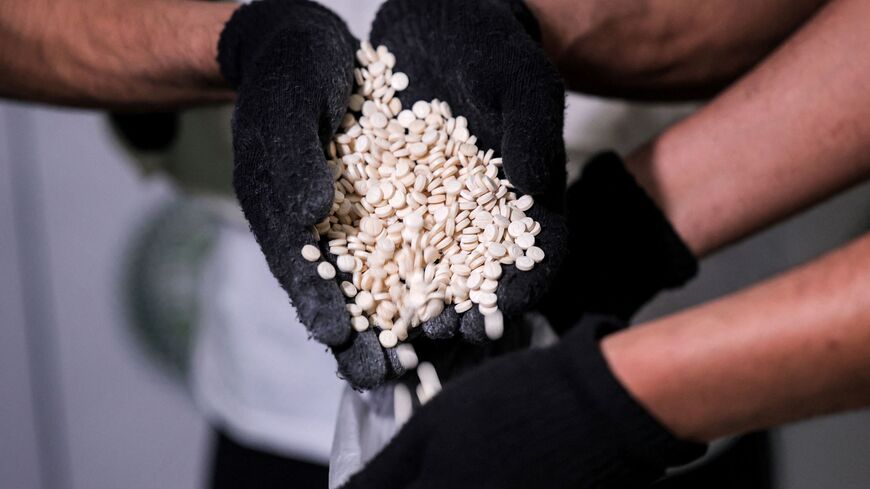DUBAI — Saudi Arabian authorities have foiled a plot to smuggle about 4.6 million amphetamine pills in shipments of ceramic toilets, sinks, and washbasins, they announced Wednesday,
A Jordanian national was apprehended while receiving the shipment in the Red Sea City of Jeddah in Saudi Arabia’s western Hejaz region, reported the kingdom’s government news agency SPA. A monetary value was not attributed to the 4,693,000 pills.
Amphetamines are classified as stimulant drugs that speed up messages sent to and from the brain and the body, and are used to treat conditions like attention deficit hyperactivity disorder and narcolepsy. They are highly addictive and dangerous.
Fenethylline, better known as Captagon, is a synthetic amphetamine-type stimulant illegally sold in consumer markets across the Arabian Peninsula. The SPA report did not specify whether the 4.6 million amphetamine pills announced today from the Jeddah bust were Captagon.
In December, Jordan seized 1 ton, or 6 million pills, of Captagon being smuggled in date paste inside two refrigerator trucks at its Iraq border, reported the BBC.
Before that, Saudi Arabia found 46 million amphetamine pills hidden in a flour shipment in what was believed to be the kingdom’s biggest drug bust at the time, according to the country’s government news agency Saudi Press Agency.
Captagon has increasingly become the drug of choice among youth in Gulf Arab states, and particularly in Saudi Arabia, according to the Arab Center. The think tank said that large-scale drug seizures are common but have done little to weaken the multibillion-dollar industry, because government authorities pursue the supply side of the issue without much attention to the demand.
The report stated that disaffected young people facing high unemployment and few outlets to relieve their frustrations have gravitated toward the drug as a coping tool, which gives a temporary feeling of well-being.
Despite the Syrian government enacting occasional crackdowns on Captagon, it appears to have more recently become the chief manufacturer of the drug along its border with Lebanon, reports the research organization. The pills are then usually smuggled by land to Jordan, from where it is believed to reach Gulf states.
The drug gained notoriety in the mid-2010s for its use and trade by Islamic State fighters. It has since grown to see involvement from both state and non-state actors in conflict zones in the region. US Assistant Secretary of State Barbara Leaf told Al-Monitor this month that the Bashar Al-Assad government is involved in the drug smuggling operations.


f0eb.jpg)





